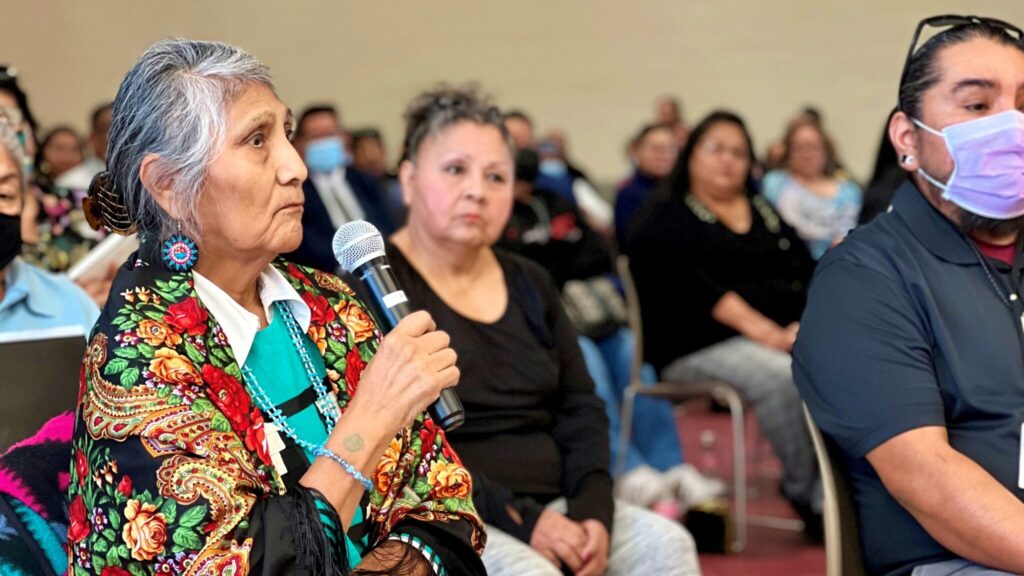On January 20, 2023, during the Road to Healing tour hosted by the U.S. Department of Interior at the Gila Crossing Community School, Pershlie Ami of the Hopi tribe shared her personal experiences attending the Phoenix Indian School as a child. This event marked a significant moment in U.S. history, as it was coincided with President Biden’s anticipated apology to Indigenous communities for the government’s role in the traumatic legacy of Native American Boarding Schools. This apology comes in the wake of a broader investigation initiated by Interior Secretary Deb Haaland, which revealed the extensive impact that these institutions had on Native American cultures, families, and identities throughout the country.
Haaland’s investigation highlighted the lack of awareness surrounding the suffering endured by Indigenous children at these boarding schools, where they were forcibly taken from their families and subjected to assimilation efforts that often included physical punishment. The report enumerated over 400 schools and identified at least 70 burial sites across the U.S., reflecting the significant toll taken on Indigenous populations. In Arizona alone, 47 boarding schools were revealed to have operated, contributing to a long-standing narrative of cultural loss, suppression, and trauma that transcends generations within Indigenous communities.
The impending apology from President Biden is seen not only as an acknowledgment of historical wrongs but also as a necessary step towards healing. Secretary Haaland expressed her deep gratitude for this historic moment, emphasizing how meaningful it is for survivors and their descendants. The Road to Healing tour further served as a platform for victims and their families to voice their stories, shedding light on their ongoing struggles as a result of the boarding school policies. Many testimonies shared during the tour illustrated the heart-wrenching experiences of those who lived through the era of forced assimilation, enabling a broader audience to recognize the enduring impact these policies have had on Indigenous communities.
The significance of Biden’s visit to Indian Country and subsequent apology arises not only from the depth of historical injustices but also from the recognition of ongoing policies that continue to marginalize Indigenous peoples. Prominent figures like Gila River Indian Community Governor Stephen Roe Lewis acknowledged the powerful and redemptive nature of the apology, highlighting the importance of addressing the painful history that has been largely overlooked in the national consciousness. Haaland reiterated this sentiment by associating the boarding school experience with a broader narrative of genocide against Indigenous communities, affirming their resilience in the face of systematic oppression.
As members of the Indigenous community express their opinions about the apology, many view it as a critical first step towards repairing the damage done over generations. April Ignacio, co-founder of Indivisible Tohono, articulated that the acknowledgment of the government’s historical role in forced assimilation is long overdue. She emphasized that the apology should also lead to actionable measures, such as reparations, to address the loss of language, culture, and identity that resulted from the boarding school era. Ignacio’s personal connection to the history—with five generations of boarding school survivors in her family—underscores the lasting impact these policies have had on individual lives and communities.
In conclusion, the Road to Healing tour and the president’s forthcoming apology signify a pivotal moment in U.S. history regarding the recognition of the injustices faced by Indigenous peoples through the boarding school system. As Secretary Haaland and community leaders embrace this opportunity for healing and acknowledgment, there is a strong call for continued action that ensures reparative measures are taken to support Indigenous communities as they work to reclaim their lost cultures and identities. This acknowledgment not only represents a moment of reflection but also serves as a catalyst for fostering understanding and healing in a broader societal context, paving the way for a more equitable future for Indigenous peoples in the United States.

